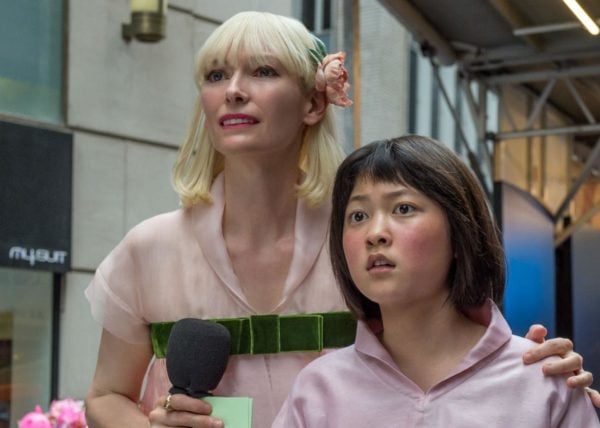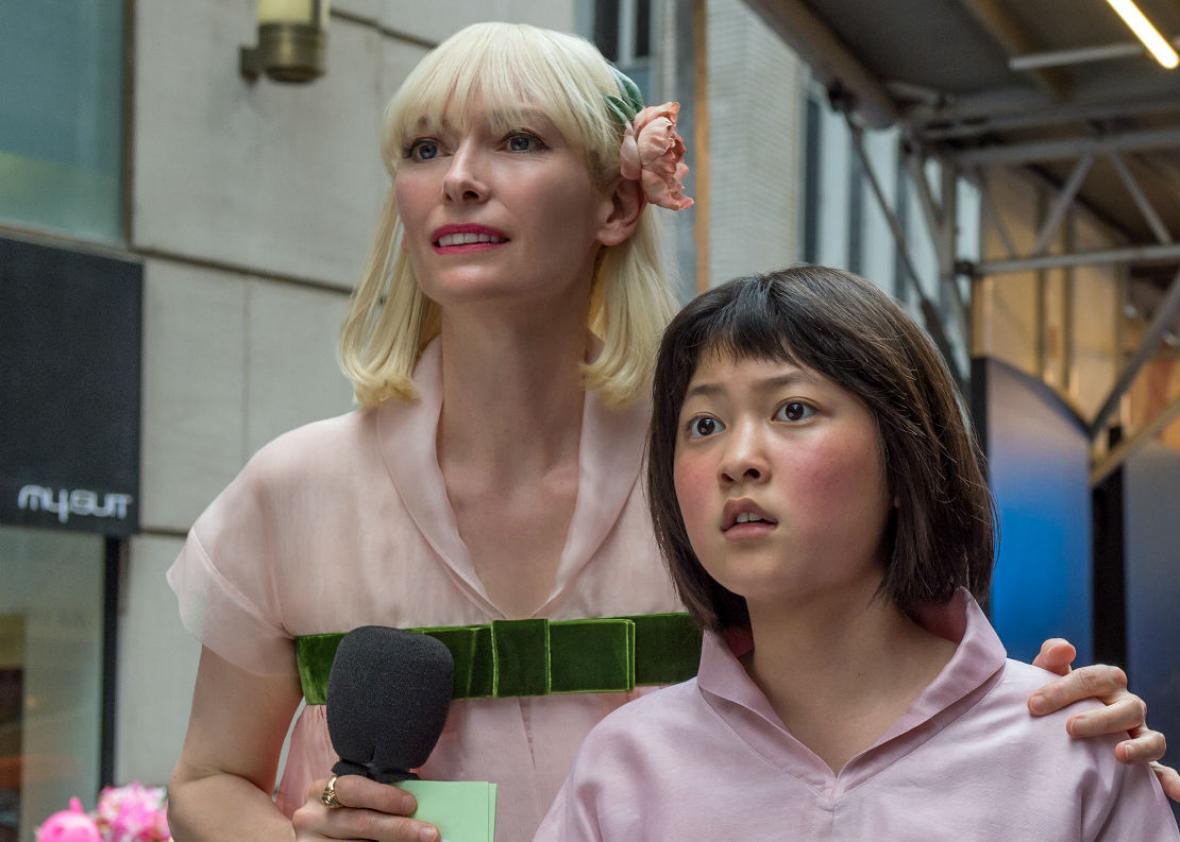
It’s not everyday that you see a pig the size of a rhinoceros skidding through a convenience store, while a group of masked people protect it from darts with colorful umbrellas. But despite the strange scenes we see in “Okja”, the film doesn’t live up to its potential uniqueness.
Director Bong Joon Ho’s comical screenplay shines in “Okja,” about a mutated super pig created by a corporation planning to sell their genetically modified species’ meat in hopes of restoring the business’ name. When Okja is captured by the corporation to promote their new product, her owner Mija (Ahn Seo-hyun), travels from their small rural farm in Korea to New York City in order to bring her back safely. Along the way Okja becomes mixed into the plans of the ALF (Animal Liberation Front), who hopes to expose the corporation for their immoral treatment of the super pigs.
Parallels between this Netflix original film and Bong’s previous picture “The Host” are easily drawn. Bong opens each movie lightheartedly, portraying scenarios like Okja’s attack of flying feces and the family’s uncontrollable sobbing in “The Host” with touching humor. But these moments do not last for long, as Bong transitions into portraying reality through the corruption of these large businesses and even the “good” organizations. Bong’s signature moments of suspense are present as well, which keeps us on the edge of our seats. But the anticipation dies down rather abruptly into a dull but meaningful closing. These strangely out-of-place endings are what really give Bong’s films their significance.
Although Bong accurately illustrates the realities of corporate greed in “Okja,” the main villains seem to be psychologically underdeveloped. CEO of the corporation Lucy Mirando (Tilda Swinton) seems to be nothing more than an insecure and cold hearted character with no complex background or emotions, similar to a villain in a cartoon show. Carrying on her double-acting bit from last years’ Coen Brothers movie “Hail, Casear!”, Tilda Swinton plays Lucy’s twin Nancy, another simple character only interested in her own prosperity. This may not be entirely the fault of the characters. Nancy allowing Okja’s survival in exchange for a golden pig is too simple of an ending to allow any growth in the characters. In fact, moments like this make the audience realize how black and white the plot is.
Bong succeeds in making the audience ride a rollercoaster of emotions, but it would have been nice if the characters were developed to be more complicated than simply having one motive. “Okja” is truly a touching and entertaining film, but it lacks the complexity and nuances that comes with such a unique film idea.
Contact Michelle Wong at mishylena ‘at’ gmail.com.
